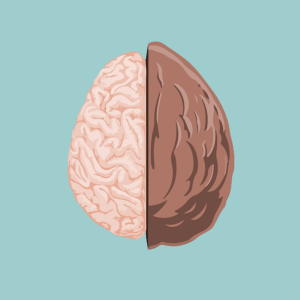
5.1M
Downloads
247
Episodes
I’m Emma McAdam, a Licensed Marriage and Family Therapist and my mission is to make mental health resources more easy to access. I take therapy skills and psychological research and condense them down into bite-sized nuggets of help. I’m here to spread the message that while mental illness is real, it’s common, it’s debilitating, it’s also treatable. There are dozens of research-backed approaches to treating depression, anxiety, and other mental illness. Change, growth, and healing are possible. Please keep courage! Try one little thing every day to improve your life and health and things can get so much better! Therapy in a Nutshell, and the information provided by Emma McAdam, is solely intended for informational and entertainment purposes and is not a substitute for advice, diagnosis, or treatment regarding medical or mental health conditions. Although Emma McAdam is a licensed marriage and family therapist, the views expressed on this site or any related content should not be taken for medical or psychiatric advice. Always consult your physician before making any decisions related to your physical or mental health. Therapy in a Nutshell and it’s logo are Registered Trademarks of Therapy in a Nutshell, LLC
Episodes

Tuesday Sep 06, 2022
Overthinking Part 2: 6 Therapy Skills to Stop Overthinking Everything
Tuesday Sep 06, 2022
Tuesday Sep 06, 2022
Learn more in one of my in-depth mental health courses: https://courses.therapyinanutshell.co...
Looking for affordable online counseling? My sponsor, BetterHelp, connects you to a licensed professional from the comfort of your own home. Try it now for 10% off your first month: https://betterhelp.com/therapyinanuts...
OK, so how can we stop overthinking everything? 1. The very first skill to stop overthinking is noticing and naming. Rumination is a bad habit that we’re often not aware we’re doing. First, get really good at identifying overthinking, say it out loud “I’m overthinking.” Ask someone to point it out to you. Learn your triggers. What time of day are you most likely to ruminate? Where are you most likely to overthink? At work? When you’re alone? When you’re at the bar? What situations trigger it? Try to predict it. So if you’re most likely to overthink something right as you go to bed or right after a social situation, prepare yourself to notice it so that you shift your focus to something more helpful. If you’re struggling to catch yourself overthinking, you could set an alarm on your phone to go off once an hour and check how much you’ve been ruminating that hour. And just track it for a week. In general, people tend to ruminate the most when they have nothing to occupy their attention. Now that you’ve gotten good at noticing when you’re overthinking, we’re going to take 2 approaches to stop overthinking everything. 1- setting limits on overthinking and 2- learn a bunch of ways to redirect your thoughts to something more helpful.
Support my mission on Patreon: https://www.patreon.com/therapyinanut...
Sign up for my newsletter: https://www.therapyinanutshell.com?utm_medium=YTDescription&utm_source=YouTube
Check out my favorite self-help books: https://kit.co/TherapyinaNutshell/bes...
Therapy in a Nutshell and the information provided by Emma McAdam are solely intended for informational and entertainment purposes and are not a substitute for advice, diagnosis, or treatment regarding medical or mental health conditions. Although Emma McAdam is a licensed marriage and family therapist, the views expressed on this site or any related content should not be taken for medical or psychiatric advice. Always consult your physician before making any decisions related to your physical or mental health. In therapy I use a combination of Acceptance and Commitment Therapy, Systems Theory, positive psychology, and a bio-psycho-social approach to treating mental illness and other challenges we all face in life. The ideas from my videos are frequently adapted from multiple sources. Many of them come from Acceptance and Commitment Therapy, especially the work of Steven Hayes, Jason Luoma, and Russ Harris. The sections on stress and the mind-body connection derive from the work of Stephen Porges (the Polyvagal theory), Peter Levine (Somatic Experiencing) Francine Shapiro (EMDR), and Bessel Van Der Kolk. I also rely heavily on the work of the Arbinger institute for my overall understanding of our ability to choose our life's direction.
And deeper than all of that, the Gospel of Jesus Christ orients my personal worldview and sense of security, peace, hope, and love https://www.churchofjesuschrist.org/c...
If you are in crisis, please contact the National Suicide Prevention Hotline at https://suicidepreventionlifeline.org/ or 1-800-273-TALK (8255) or your local emergency services.
Copyright Therapy in a Nutshell, LLC

No comments yet. Be the first to say something!